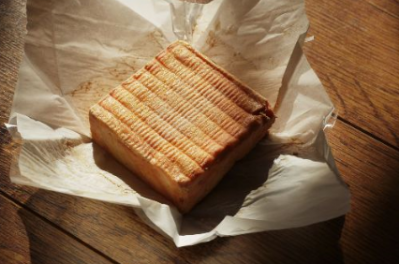HPP use in cheese “limited” due to quality changes

They said the appeal of HPP, also known as high hydrostatic pressure processing, is limited by the changes that result from exposure to pressures high enough to eliminate pathogens or inactivate degradation enzymes.
Changes include excessive wheying-off and in textural and rheological properties and warned cheese producers must be aware of how the higher pressures will alter the quality.
Queso Fresco cheese
Queso Fresco, a high-moisture, high-pH Hispanic-style cheese sold in the US, underwent HPP to determine the effects on quality traits of the cheese.
Van Hekken et al said more information is required on the effects that high pressures have on the physical quality traits of the cheese before HPP can be incorporated into commercial production.
The study examined the effect of HPP on the quality traits (chemical, functional, and rheological properties) of QF made without starter cultures or pressing.
Phase one examined the effects of hydrostatic HPP on the quality traits of fresh QF that had been warmed to a core temperature of 20 or 40°C; processed at 200, 400, or 600 MPa for 5, 10, or 20 min; and stored at 4°C for six to eight days.
Phase two plans
Phase two examined the long-term effects of HPP on quality traits when QF was treated at 600 MPa for three or 10 min, and stored at 4 or 10°C for up to 12 weeks.
Warming the QF to 40°C before packaging and exposure to high pressure resulted in loss of free whey from the cheese into the package, lower moisture content, and harder cheese.
In phase two, the control QF, regardless of aging temperature, was significantly softer than HPP cheeses over the 12 weeks of storage.
Hardness, fracture stress, and fracture rigidity increased with length of exposure time and storage temperature, with minor changes in the other properties.
Queso Fresco remained a bright white, weak-bodied cheese that crumbled and did not melt upon heating.
Although high pressures or long processing times may be required for the elimination of pathogens, cheese producers must be aware that HPP altered the rheological properties of QF and caused wheying-off in cheeses not pressed before packaging.
Research was partially funded by Dairy Management administered by the Dairy Research Institute, Rosemont, Illinois.
Source: Journal of Dairy Science
“Effect of hydrostatic high-pressure processing on the chemical, functional, and rheological properties of starter-free Queso Fresco”
Authors: D.L. Van Hekken, M.H. Tunick, N.Y. Farkye, P.M. Tomasula











